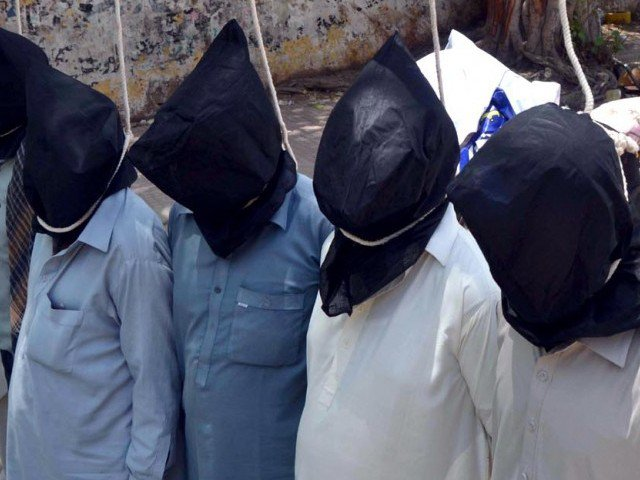UN to review Pakistan for compliance with global human rights treaty
Pakistan will have to answer for its use of the death penalty and the manner in which it executes

PHOTO: THEEXPRESSTRIBUNE
The Pakistani government is set to be reviewed on July 11 and 13, 2017 by the United Nations Human Rights Committee for its compliance with the International Covenant on Civil and Political Rights (ICCPR).
Pakistan ratified the multilateral treaty of ICCPR in 2010 which stated that the parties are to uphold and respect the right to life for all its citizens. As Pakistan, in 2014, returned to being a state which has the death penalty , this issue has been taken up by the Human Rights Council committee.
Pakistan is obligated to strive for the promotion and protection of the rights recognized in the ICCPR. This is the first time that Pakistan will be reviewed for its compliance with the requirements of the ICCPR since its ratification.
Pakistan ratified the ICCPR to qualify for its GSP+ scheme, a preferential trade status that has seen its exports rise to €6.272 billion from January – December 2016. Failing to comply with these requirements, that the GSP+ status is conditional upon, can put these economic advantages at risk, reports the Justice Project Pakistan (JPP).
Three Pakistani heroin traffickers executed in Saudi Arabia
In its initial state report, submitted five years too late, Pakistan has reinforced that "the death penalty is being imposed after due process and in the case of most serious crimes only". It has also emphasised that the "death penalty cannot be imposed on an individual below the age of 18."
On the contrary, only last week, requests were forwarded by jail authorities to issue the execution warrants for a juvenile named Muhammad Iqbal. In just one year after the moratorium on capital punishment was lifted, Pakistan became the third most copius executioner in the world.
Execution warrants for the mentally ill (Imdad Ali, Khizar Hayat), physically disabled (Abdul Basit) and juvenile offenders (Aftab Bahadur) have been issued. More and more cases of wrongful executions have come to light.
In October last year, the Supreme Court acquitted two brothers in Bahawalpur after they spent 11 years on death row, only to find out they had already been executed the year before, reports the JPP.
Another prisoner was found innocent a year after he had been found dead in his cell. There are likely many more cases like this, considering a condemned prisoner will spend an average of 11.41 years on death row.
The JPP has submitted a shadow report evaluating Pakistan’s compliance to the ICCPR, and their findings unveil Pakistan’s violation of the Covenant, and how the most vulnerable members of our society, like the poor, juvenile offenders and mentally ill are the most likely to be hanged.
In 2017 alone, Pakistan has had to and will have to answer for its use of the death penalty and the manner in which it executes before three UN treaty bodies as well as undergo its Universal Periodic Review.
The ICCPR review is the second of these reviews for Pakistan, the first being the Convention Against Torture Review in April.
The HRC will also be making recommendations aimed at promoting and protecting human rights in the country on 28 July.
ICJ stays Jadhav’s hanging till it makes final ruling
"Pakistan has previously committed to reducing the scope of the death penalty, as the ICCPR commits them to do so. Last year, death sentences went up by 300 percent, and we saw some very troubling execution warrants being issued," JPP Executive Director Sarah Belal said.
"We hope that this review provokes some much needed introspection about the dire need for reform in our criminal justice system, particularly when institutional flaws have led to wrongful executions," she added.



















COMMENTS
Comments are moderated and generally will be posted if they are on-topic and not abusive.
For more information, please see our Comments FAQ